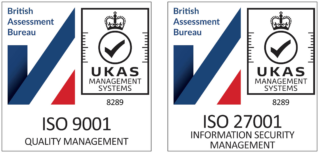How can technology help with Right to Work checks on all of your applicants?

At HR Technologies, in May 2023 in ExCel London, I shared my thoughts on using technology to navigate the processes for compliant Right to Work checks.
Right to Work (RtW) checks remain a crucial aspect of any organisation’s compliance process. In the past year, there have been significant changes to the guidance around Right to Work. These updates have led employers to evaluate how they will make RtW checks – digitally, using physical documents or using a mixture of methods.
The good news is that Identity Document Validation Technology (IDVT) from the right Identity Service Provider (IDSP) can underpin onboarding checks, no matter how you onboard employees. IDVT gives an employer confidence that they are only accepting genuine documents and employing legal workers whilst remaining compliant. IDSPs also help to streamline on-boarding checks for faster recruitment and better employee experience.
In my presentation at the HR Technologies Conference and Exhibition I shared TrustID’s knowledge and advice across three key areas:
1. Right to Work guidance – navigating recent changes to legislation
Right to Work guidance went through two major changes in April and October 2022 as Covid adjustments came to an end. There is new guidance for the Digital RtW Scheme for UK and Irish citizens which allows remote validation checks using an IDSP. You can also make remote checks on Share code holders. Alternatively, you can revert to non-digital checks using physical documents. However employers choose to check applicants, it’s important to get checks right as they can face penalties if they employ someone they knew or had ‘reasonable cause to believe’ did not have the right to work in the UK.
Read our latest guide to Right to Work here.
2. Trends in fraudulent identity documents and what to watch
TrustID has seen thousands of fraudulent identity documents detected by their technology and expert human team and shared insight from their fraudulent document data. The use of different types of fake documents and the countries where most fake documents claim to be from tell a cautionary tale for employers to be ever vigilant, no matter which RtW methods you adopt. Full insights into the 2022 stats in our blog here.
3. How IDSPs help with each different type of RtW check
Different IDSPs offer support across some or all the different types of RtW checks: the Digital Scheme, online eVisa or share code checks and non-digital, physical document checks. A trusted certified IDSP like TrustID can provide support for every type of check and IDVT supports and protects an employer in each case.
In summary, TrustID’s combination of technology and experienced identity professionals helps organisations confirm that an applicant is who they say they are in a way which fits their processes and supports their compliance. If you’d like to find out more about how we could support your Right to Work checks, please get in touch.
Sign up to receive updates
Receive notifications from TrustID direct to your inbox. Simply fill out your email address in the form below.
Want to find out more?
We’d be really happy to chat through your requirements and offer advice on the best service for your business.
Tel: 0118 466 0822 or email us.
Request a callback
